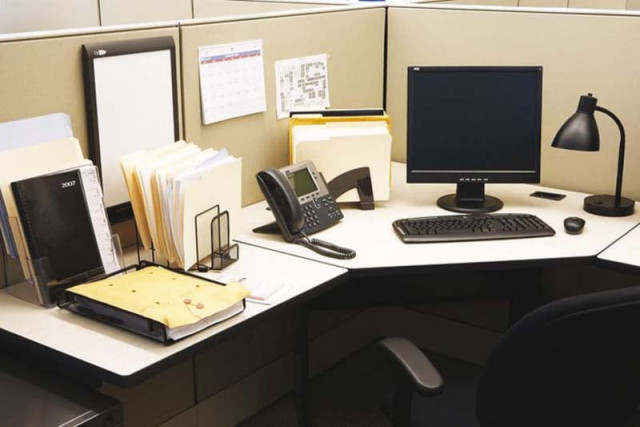Monday blues: 7 reasons you’re tired and sleepy at work
Here’s a list of what experts reveal as the common habits that can make you feel drained and heavy-eyed at work

You skip exercise before work
Did you know that skipping your workout to save energy actually works against you? In a University of Georgia study, sedentary but otherwise healthy adults who began exercising lightly three days a week for as little as 20 minutes at a time reported feeling less fatigued and more invigorated after six weeks. Reason: regular exercise boosts strength and endurance, helps make your cardiovascular system run more efficiently, and delivers oxygen and nutrients to your tissues. Make it a habit to never skip your workout before work — even if that’s 25 push-ups and 30 squats, just do it before you head out.
Sleep deprivation can lead to false confessions
You don’t drink enough water
Being even marginally dehydrated — as little as 2% of normal fluid loss, takes a toll on energy levels at work or otherwise, says Amy Goodson, a dietician for Texas Health Ben Hogan Sports Medicine. Dehydration causes a reduction in blood volume, explains Goodson, which makes the blood thicker. This requires your heart to pump less efficiently, reducing the speed at which oxygen and nutrients reach your muscles and organs. To calculate your normal fluid needs, take your weight in pounds, divide in half and drink that number of ounces of fluid a day, Goodson recommends.
You’re not consuming enough iron
An iron deficiency can leave you feeling lethargic, irritable, and unable to focus at work. “It makes you tired because less oxygen travels to the muscles and cells,” says Goodson. Boost your iron intake to reduce your risk of anaemia: load up on lean beef, kidney beans, tofu, eggs (including the yolk), dark green leafy vegetables, nuts, and peanut butter, and pair them with foods high in Vitamin C (Vitamin C improves iron absorption when eaten together), suggests Goodson. Note: an iron deficiency may be due to an underlying health problem, so if you’re experiencing these symptoms of iron deficiency, you should visit your doctor.
You’re a perfectionist
Striving to be perfect — which, let’s face it, is impossible, makes you work much harder and longer than necessary, says Irene S Levine, professor of psychiatry at the New York University School of Medicine. “You set goals that are so unrealistic that they are difficult or impossible to achieve, and in the end, there is no sense of self-satisfaction.” Levine recommends setting a time limit for yourself on your work projects, and taking care to obey it. In time, you’ll realise that the extra time you were taking wasn’t actually improving your work.
You skip breakfast
The food you eat fuels your body, and when you sleep, your body continues using what you consumed at dinner the night before to keep your blood pumping and oxygen flowing. So, when you wake up in the morning, you need to refuel with breakfast. Skip it before work, and you’ll feel sluggish. “Eating breakfast is like starting a fire in your body by kick-starting your metabolism,” Goodson says. Goodson recommends a breakfast that includes whole grains, lean protein, and healthy fat. Think oatmeal with milk; a smoothie made with fruit and yogurt; or an omelette with two slices of whole-wheat toast.
You have a messy office
Did you realise that a cluttered desk mentally exhausts you by restricting your ability to focus and limits your brain’s ability to process information, according to a Princeton University study. The solution: At the end of each day, make sure your work and personal items are organised and put away. This practice will help you have a positive start to your day the next morning. If your office or cubicle needs major reorganising, avoid becoming totally overwhelmed by taking it one step at a time: start by tidying what you can see, then move through your desk and cabinets drawer by drawer.
You have trouble saying ‘no’
People-pleasing often comes at the price of your own energy and happiness. To make matters worse, it can make you not only drowsy and worn-out at work but resentful and angry over time. So whether it’s your kid’s teacher asking you to bake cookies for the class’s field trip or your colleague asking you for a work or personal favour, you don’t have to say yes. Train yourself to say ‘no’ out loud, suggests Susan Albers, a licensed clinical psychologist with Cleveland Clinic and author of Eat Q: Unlock the Weight-Loss Power of Emotional Intelligence. “Try it alone in your car,” she says. “Hearing yourself say the word aloud makes it easier to say it when the next opportunity calls for it.”
Published in The Express Tribune, May 9th, 2016.
Like Life & Style on Facebook, follow @ETLifeandStyle on Twitter for the latest in fashion, gossip and entertainment.



















COMMENTS
Comments are moderated and generally will be posted if they are on-topic and not abusive.
For more information, please see our Comments FAQ